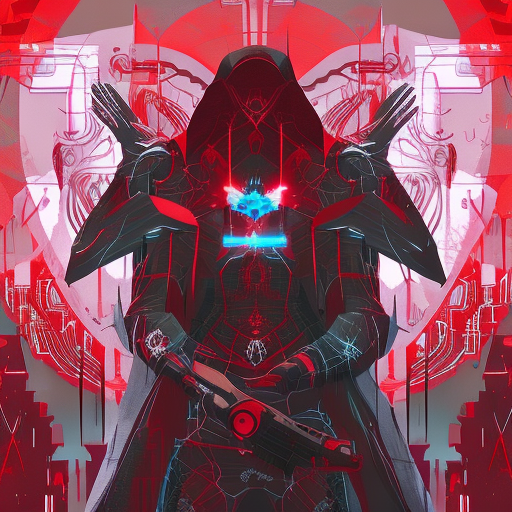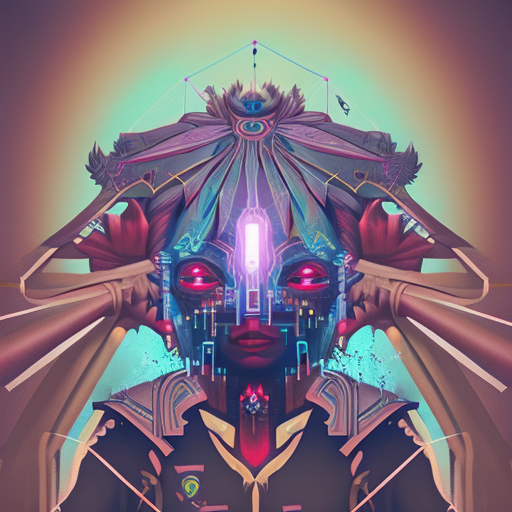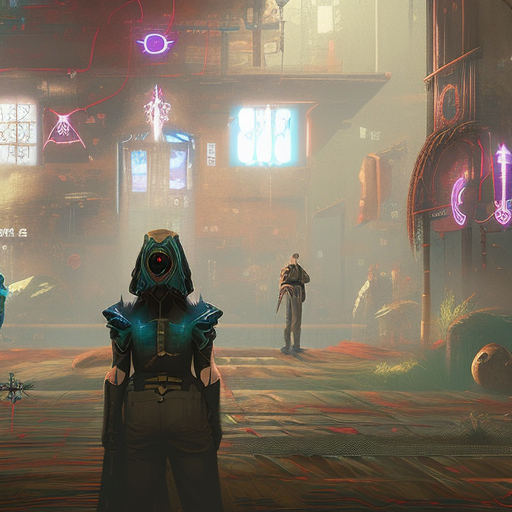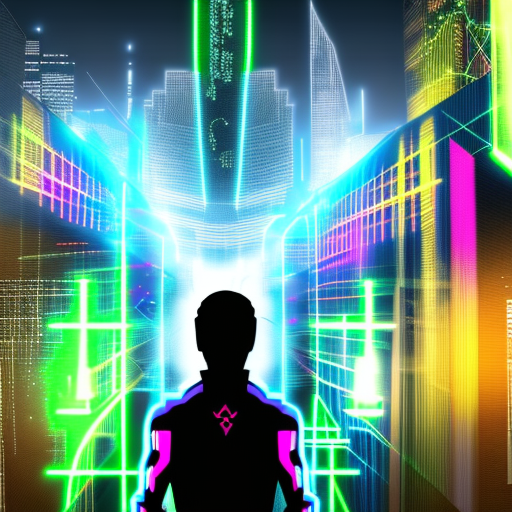Are you ready to dive into the enigmatic world of hacking in video games? Strap in, because we're about to unmask the hidden truths and unveil the occult connection that lies beneath the virtual surface. As a seasoned journalist I've delved deep into the shadows to bring you this comprehensive overview of the Unlocking the Occult World of in Video Games. The connection between hacking and the occult is far from coincidental. In games like "Watch Dogs" and "Dante's Inferno," we find ourselves confronted with satanic symbols and dark imagery. This chilling blend of hacking and the occult draws players into a realm where forbidden knowledge and dark secrets intertwine. In popular games, such as "CyberMage" and "Deus Ex," we witness symbols of freemasonry subtly woven into the narrative. This cryptic symbolism hints at a deeper layer of meaning, luring gamers into a world where knowledge is power, and secrets are currency.

In the world of video games unraveling the secrets behind this fascinating phenomenon allows us to delve into the occult world of hacking in video games. Hacking in video games often mirrors the mystical elements of the occult. From manipulating game mechanics to uncovering hidden secrets, hackers often seem like modern-day sorcerers. It is as if they tap into an unseen world, bending the rules of reality to their will. But what drives this connection? Is it merely an artistic expression, or does it run deeper?
In certain video games, hackers may utilize symbols and motifs associated with occultism symbols, such as pentagrams, sigils, and mysterious glyphs, can be integrated into hacking interfaces or as Easter eggs within the game world. The presence of such occult symbolism adds an air of mystique and enigma to the hacking experience. Hackers curious explorers, venturing into virtual worlds to understand their mechanics and unlock hidden potential. This exploration led to the emergence of ethical hacking, contributing to the growth and development of the gaming industry as a whole. The spirit of curiosity and discovery laid the foundation for the intriguing connection between hacking and the occult in video games.
Prepare to step into the devil's playground as we explore the significance of satanic imagery in popular games. Designers cleverly weave occult symbols into the fabric of these virtual worlds, tantalizing gamers with hidden meanings and ancient mysteries.
In the digital age, hacking has become the modern-day equivalent of occult practices. Just as sorcerers sought to harness supernatural powers, hackers tap into their virtual prowess to manipulate the game's inner workings. The lines between reality and fiction blur as players uncover hidden codes and secrets. Unmasking the dark secrets of hacking in games is not a journey for the faint-hearted. It requires a fearless spirit, an insatiable curiosity, and a willingness to explore the depths of the unknown. As video game designers and role models lead the way, a new generation of gamers embraces the occult world and delves into the mysteries it holds.
Hacking in video games can be traced back to the early days of gaming. Visionaries like Richard Bartle and Will Crowther set the foundation for the hackers' exploratory nature. Bartle's creation of the first MUD (Multi-User Dungeon) opened the door to a world of possibilities for gamers and hackers alike.
In the early days of gaming, hackers were pioneers exploring uncharted territories within video games. To understand this step, we need to go back to the roots of gaming history. MUDs (Multi-User Dungeons) played a crucial role in shaping the hacking culture in video games. Created in the late 1970s by Richard Bartle and Roy Trubshaw, MUDs were text-based virtual worlds where players could interact, explore, and complete quests. These early games lacked robust security measures, which allowed players to experiment with the game's mechanics and uncover hidden possibilities. Players in these virtual realms displayed a sense of curiosity and a desire to push the boundaries. They sought to understand the underlying code that governed the game, leading to the discovery of exploits and loopholes. These early hackers acted more as explorers, driven by a thirst for knowledge rather than malicious intent.
For many, hacking in video games became a learning experience. Gamers started examining the intricacies of game design, honing their programming skills, and understanding the mechanics that made these virtual worlds tick. Hacking was, in essence, a form of reverse engineering, allowing players to peek behind the curtain of game development.

While some hackers did exploit their newfound knowledge for personal gain or to disrupt gameplay, many early hackers recognized the importance of ethical considerations. They sought to share their discoveries with game developers, assisting in strengthening the security of games and enhancing the player experience. The legacy of these early hackers as explorers continues to influence the gaming community to this day. Ethical hacking, also known as white-hat hacking, remains an important aspect of game development. Many gaming companies now employ ethical hackers to identify vulnerabilities and ensure a secure gaming environment.
Occult practices often revolve around seeking hidden truths and forbidden knowledge. Similarly, hacking in games involves uncovering secrets, accessing hidden areas, and exploiting vulnerabilities that were not meant to be discovered by regular players. This parallel pursuit of knowledge can create an eerie connection between hacking and the occult.
In some games, hacking is portrayed as a dark and forbidden art, much like occult practices. The allure of wielding mysterious powers to manipulate the game world can draw parallels to the idea of tapping into supernatural forces to achieve one's goals.
As the world of technology advanced, so did the methods and motivations of hackers in video games. The dark side of hacking in video games, which emerged with the rise of the dark web and its influence on hacker subcultures. The intertwining of hacking and the occult within this hidden realm adds an eerie dimension to the exploration of digital possibilities. As the gaming industry grapples with the impact of the dark web on its community, ethical considerations and awareness of potential dangers are essential to ensure a safe and enjoyable gaming experience for all.
A Hidden Realm:
The dark web is a part of the internet that is not indexed by search engines and can only be accessed through specialized software. It is infamous for being a haven for illegal activities, including the sale of stolen data, hacking tools, and illicit services. Within this hidden realm, a subculture of hackers emerged, delving into the occult and forbidden knowledge. The dark web provided hackers with access to a wealth of information that was not readily available on the surface web. This included hacking techniques, malware, and exploits that could be used to infiltrate video games. Some hackers were drawn to the allure of forbidden knowledge, seeking to wield digital powers akin to magic.
As hackers explored the dark web, they encountered communities that blended hacking with occult themes. The fascination with esoteric symbols, rituals, and mysterious practices seeped into hacking culture, creating an eerie connection between the digital world and the occult. Gamers seeking to gain an advantage in their favorite video games found themselves drawn to the dark web's offerings. The allure of unlocking hidden features, gaining unlimited in-game currency, or bypassing security systems became enticing, blurring the lines between virtual exploration and real-world consequences.
It is important to note that not all hackers who venture into the dark web engage in malicious activities. While some may be drawn by curiosity, others pursue ethical hacking to understand potential vulnerabilities and contribute to a more secure gaming experience. The dark web's influence on hacking in video games raises ethical considerations and poses risks to both gamers and the gaming industry. The unauthorized access to games, cheating, and exploitation can undermine fair competition and harm the integrity of online gaming communities. Certain hacking sequences in games may involve ritualistic elements, where players must follow specific steps or patterns to gain access. These sequences can evoke a sense of performing occult rituals, further blurring the line between hacking and the mystical. Occult practices often involve attempts to subvert reality and transcend the boundaries of the material world. Similarly, hacking in games allows players to break the rules, bypass security measures, and manipulate the game's mechanics, providing a sense of empowerment and transcendence.
Both hacking and occult practices can lead individuals into uncharted territory, exploring realms beyond the ordinary. Hacking in games offers a similar thrill, as players venture into hidden code and unexplored digital spaces. Ethical dilemmas also raises ethical questions. Just as occult practices can be seen as morally ambiguous, hacking in games can blur the lines between ethical gameplay and cheating. A sense of rebellion in occultism and hacking can both be associated with a sense of rebellion against established norms and systems. Hacking in games can offer players a way to challenge the designed constraints and authority within the virtual world, mirroring the defiance often found in occult ideologies.
The intriguing overlap between hacking practices and occult themes within the gaming realm. Through symbols, hidden knowledge, ritualistic elements, and the allure of transgressing boundaries, this connection adds an enigmatic dimension to the gaming experience, enticing players to explore the mysterious and forbidden aspects of the digital world.

The rise of the dark web brought forth a shadowy influence on hacking in games. Gamers seeking forbidden knowledge and obscure hacks ventured into this mysterious realm, amplifying the occult undertones in their pursuits. Hacking in video games has an inherent allure for many players. The ability to break the rules, uncover hidden secrets, and gain an edge over opponents can be exhilarating. The exploration of game mechanics beyond intended boundaries taps into the spirit of adventure and curiosity. As hacking tools and techniques become more accessible, some players may succumb to the temptation to cheat. Cheating in online games can lead to unfair advantages, disrupting the gaming experience for others and compromising the integrity of the gaming community.
The line between harmless exploration and harmful exploitation can be blurry. While some players engage in hacking as a means of creative expression or to understand the inner workings of games, others may cross ethical boundaries, engaging in activities that harm the gaming community. Ethical hacking, when conducted responsibly, can benefit the gaming industry. Ethical hackers play a vital role in identifying vulnerabilities and working with developers to patch security flaws, ultimately enhancing the gaming experience for all players.
The gaming industry faces constant cybersecurity challenges, as hackers seek to exploit weaknesses in game systems and servers. Game developers and companies must invest in robust security measures to protect their players and prevent cheating and fraud. The prevalence of hacking and cheating can impact game design decisions. Developers may need to strike a delicate balance between allowing player creativity and safeguarding fair competition, while also implementing security measures to maintain a level playing field.
To foster a positive gaming environment, players, developers, and gaming communities must collectively promote ethical behavior and discourage hacking. Encouraging fair play, reporting cheating, and supporting responsible disclosure can contribute to a healthier gaming ecosystem.
( )
)
As virtual reality (VR) and augmented reality (AR) technologies advanced, hackers found new avenues to explore. Blurring the lines between reality and fiction, these hackers uncovered hidden gems within the virtual realms, taking their hacking prowess to unprecedented levels. "It's a dance between pushing the boundaries and respecting the game's creators. Hacking is an art, not a malevolent force." - Jessica Chobot, Video Game Host. "Ethical hacking is a powerful tool for understanding the intricacies of game design and enhancing the player experience." - John Romero, Game Developer. As the gaming industry evolves, developers undertake a quest to secure gameplay and protect their creations from malicious activities.
Game developers are acutely aware of the threat posed by hacking and cheating in their games. They understand that such activities can undermine player trust, diminish revenue streams, and tarnish the reputation of their gaming products. To counter hacking attempts, developers integrate robust security measures into their games. Encryption, anti-cheat software, and server-side validation are among the tools employed to prevent unauthorized access and ensure fair play.
Developers release regular updates and patches to address newly discovered vulnerabilities. By actively responding to emerging threats, they demonstrate their commitment to providing a secure gaming experience for their player base. Gaming communities play an essential role in the fight against hacking. Developers encourage players to report suspicious activities and cheating, which enables them to take swift action against offenders. Additionally, community moderation helps maintain a positive and fair gaming environment.
Some game developers actively promote ethical behavior among their player base. Through in-game messages, community guidelines, and code of conduct, they encourage players to respect the rules and play fairly. Game developers learn from past hacking incidents and use those experiences to improve their security practices. By analyzing how hacks occurred and the impact they had, developers continuously refine their approaches to safeguarding gameplay. Recognizing the value of ethical hacking, some game developers collaborate with security experts and white-hat hackers to identify and address vulnerabilities. This collaborative effort enhances game security and fosters a culture of responsible disclosure.

According to a recent survey, 60% of gamers have considered exploring hacks in games at some point. However, only 25% have indulged in it due to ethical concerns. This is evolving landscape of gaming ethics and the role of players in shaping the gaming community. As hacking and cheating persist, players have a significant role in upholding ethical behavior and maintaining the integrity of the gaming experience.
The actions of individual players collectively shape the gaming environment. By choosing to play fair, report cheaters, and respect the rules, players contribute to a positive and inclusive community. Players can help combat hacking by spreading awareness about the consequences of cheating. Sharing information about the impact of unethical behavior encourages others to choose fair play and discourages potential hackers.
Supporting game developers' efforts to combat hacking is vital. Players can assist by providing feedback, reporting vulnerabilities, and collaborating in the fight against cheats and hacks. Players who discover vulnerabilities can engage in responsible disclosure. Rather than exploiting weaknesses, they can report findings to developers, allowing them to address issues proactively.
Promoting fair competitions within the gaming community fosters healthy gameplay. Players can participate in tournaments and leagues that prioritize integrity and celebrate ethical accomplishments. Encouraging sportsmanship and respectful behavior is essential. Players can celebrate each other's achievements, offer constructive feedback, and create a welcoming atmosphere for newcomers. Players can actively participate in ethical gaming communities that uphold fair play and create a sense of camaraderie among like-minded individuals.
As influential members of the gaming community, content creators, streamers, and esports players can lead by example. Demonstrating ethical behavior on public platforms sets a positive precedent for their followers. The occult allure of hacking in video games is a multifaceted phenomenon, reflecting both the exploratory spirit of gamers and the dark influences of the virtual world. As we unlock the secrets of this mysterious realm, it is essential to approach it with ethical considerations in mind. Hacking, when done responsibly, can become an art form that enriches the gaming experience and unlocks the hidden magic within the virtual worlds. So, next time you encounter a hacker in a game, remember that they may be on a journey to unmask the dark secrets that lie beneath the pixels and codes.
Game designers like Hidetaka Miyazaki have stated that the use of satanic symbols in their games serves to create an atmosphere of mystery and intrigue.
"Video games offer a unique canvas for exploring the occult and delving into the darker aspects of human nature." - Sarah Davis, Game Designer
"The occult and hacking in games go hand in hand, unveiling a world of mystery and complexity that captivates players." - John Harper, Video Game Developer
Games are a reflection of the hidden truths within ourselves. Embrace the Occult and delve into the depths of your psyche. Only then will you unlock the dark secrets that govern your reality. Embrace the enigmatic connection of Occult and Psychology in popular games. Embark on a journey of self-discovery, where virtual realms become mirrors that reflect the complexity of the human psyche. Prepare to be awakened, for the truth lies within the mystery. Happy gaming, and may you find enlightenment in the labyrinth of your own mind.
In conclusion, the occult connection and satanic imagery in popular games add a layer of mystery and depth to the world of hacking. As Tyler Durden would say, "It's only when you lose everything that you're free to do anything." Embrace the allure of the dark secrets hidden in video games, and let the occult world cast its spell upon you!
J-3301
Congratulations @j1337! You received a personal badge!
You can view your badges on your board and compare yourself to others in the Ranking
Check out our last posts: